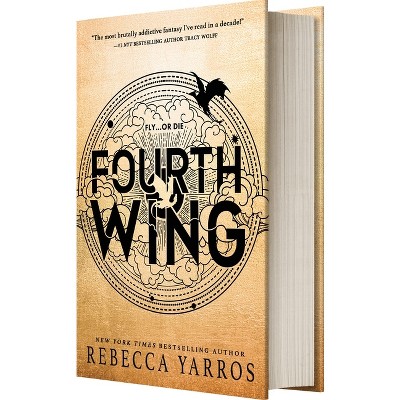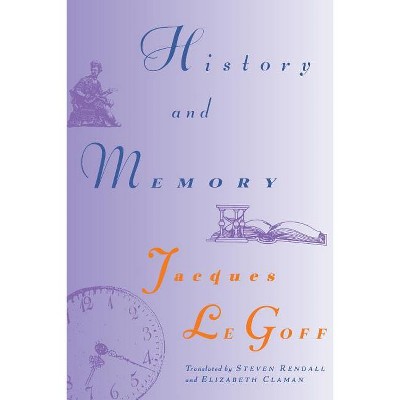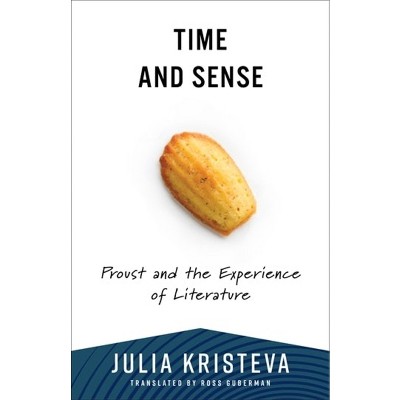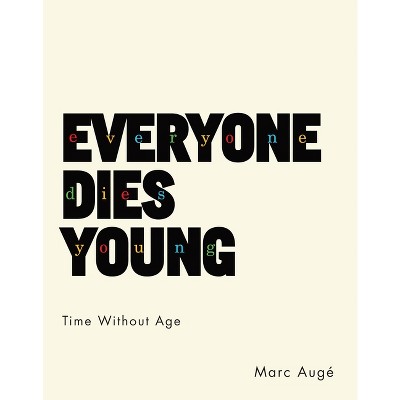Geneses, Genealogies, Genres, and Genius - (European Perspectives: A Social Thought and Cultural Criticism) by Jacques Derrida (Paperback)

About this item
Highlights
- Jacques Derrida argues that the feminist and intellectual Hélène Cixous is the most important writer working within the French idiom today.
- About the Author: Jacques Derrida (1930-2004) was one of the twentieth century's most prolific and influential philosophers.
- 128 Pages
- Literary Criticism, European
- Series Name: European Perspectives: A Social Thought and Cultural Criticism
Description
About the Book
Jacques Derrida argues that the feminist and intellectual Helene Cixous is the most important writer working within the French idiom today. To prove this, he elucidates the epistemological and historical interconnectedness of four terms: genesis, genealogy, genre, and genius, and how they pertain to or are implicated in Cixous's work.Derrida explores Cixous's genius (a masculine term in French, he is quick to point out) and the inspiration that guides and informs her writing. He marvels at her skill in working with multiple genres. He focuses on a number of her works, including her extraordinary novel Manhattan and her lyrical and evocative Dream I Tell You. Derrida also delves into the nature of the literary archive, the production of literature, and the importance of the poetic and sexual difference to the entirety of his own work.
Book Synopsis
Jacques Derrida argues that the feminist and intellectual Hélène Cixous is the most important writer working within the French idiom today. To prove this, he elucidates the epistemological and historical interconnectedness of four terms: genesis, genealogy, genre, and genius, and how they pertain to or are implicated in Cixous's work.
Derrida explores Cixous's genius (a masculine term in French, he is quick to point out) and the inspiration that guides and informs her writing. He marvels at her skillful working within multiple genres. He focuses on a number of her works, including her extraordinary novel Manhattan and her lyrical and evocative Dream I Tell You, a book addressed to Derrida himself and one in which Cixous presents a series of her dreams. Derrida also delves into the nature of the literary archive, the production of literature, and the importance of the poetic and sexual difference to the entirety of his own work. For forty years, Derrida had a close personal and intellectual relationship with Hélène Cixous. Clever, playful, and eloquent, Geneses, Genealogies, Genres, and Genius charts the influence these two critical giants had on each other and is the most vital work to address Cixous's contribution to French thought.Review Quotes
No one has performed more learned yet more innocent pirouettes around words, letters, no one has ever managed to get French more joyously drunk, giving philosophy the full measure of its greatness once and for all, its tragic, its comic spell.
--Helene Cixous on Jacques DerridaNo one has performed more learned yet more innocent pirouettes around words, letters, no one has ever managed to get French more joyously drunk, giving philosophy the full measure of its greatness once and for all, its tragic, its comic spell.--H?l?ne Cixous on Jacques Derrida
"No one has performed more learned yet more innocent pirouettes around words, letters, no one has ever managed to get French more joyously drunk, giving philosophy the full measure of its greatness once and for all, its tragic, its comic spell." -- HA(c)lA]ne Cixous on Jacques Derrida, reviewing a previous edition or volume
About the Author
Jacques Derrida (1930-2004) was one of the twentieth century's most prolific and influential philosophers. He was director d'etudes at the Ecole des Hautes Etudes en Sciences Sociales in Paris and professor of humanities at the University of California, Irvine. Among the most recent of his many books to be translated into English are Eyes of the University; Rogues: Two Essays on Reason; and On Touching: Jean-Luc Nancy.
Beverley Bie Brahic is a translator and poet living in Paris.Shipping details
Return details
Trending Fiction











